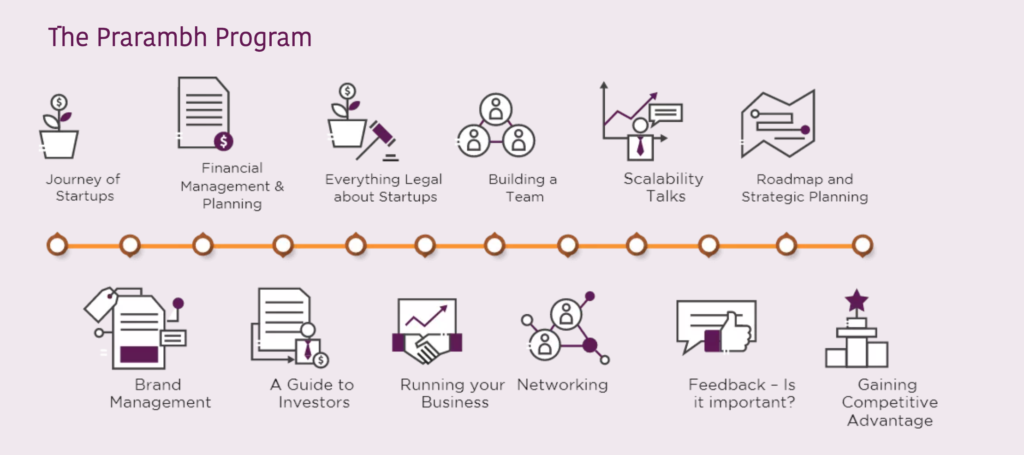
Cyril Amarchand Mangaldas (CAM) is India’s largest law firm, with 750 lawyers. It is also the creator of the nation’s first legal tech incubator – Prarambh. Artificial Lawyer caught up with Komal Gupta, Chief Innovation Officer, to hear how CAM’s latest cohort has fared, and where legal tech is heading now in India.
First, the broader picture. Numbers vary, but most authorities agree there are at least 1.3 million lawyers in this country of 1.4 billion people. The commercial legal world is understandably a subset of this, but given the scale of India it is still significant.
India also has a Common Law system, commercial lawyers operate in English, there has also been a long history of Legal Process Outsourcing and close alliances between the country’s top firms and those in the UK and US.
But, are things taking off in terms of legal tech? Gupta at CAM said that things are noticeably picking up now.

‘The legal tech landscape is fast evolving in India. We have seen a paradigm shift from no discussion at all, to an increase in users of legal tech and also investments. A recent example being Leegality [an e-signature and workflow startup] who were a part of Prarambh’s first cohort and have since raised Pre-Series A Funding from IIFL.
‘When we started out with the use of legal tech in 2018, the market was nascent in terms of both awareness and products. Many products which were in the early development and ideation stages when we first saw them two years ago, have now evolved into successful products with a high adoption rate.
‘The judiciary and clients are also talking about building efficiency using legal tech and that is definitely having a positive impact on the ecosystem. With Prarambh, we have been able to give a boost and recognition to the startups working in this space and have made legal tech a category in incubator and accelerator applications – a category that never existed [in India before],’ Gupta said.
Over the years this site has written about several homegrown legal tech startups that have launched in India, and new ones keep appearing. It’s also worth mentioning that insurance law specialists, Kennedys, has a legal tech-focused base in India, and HighQ also has around 250 staff there, or at least it did in 2019.
But back to CAM and the incubator. The latest cohort – its second – joined in June and they have now completed their time with the firm. The companies were:
‘Conduct is a culture compliance tech solution focused on bringing data at the forefront of diversity & inclusion building and management at the workplaces. The internal committees of a company can manage the complaints, minutes of minutes, identify quorum, prepare conciliation and inquiry reports through this secure system.
Presolv360 is an independent institution that facilitates and administers dispute resolution services via its cloud-based end-to-end online dispute resolution (‘ODR’) platform and specialises in small to mid-value commercial dispute resolution by making it data-driven and inclusive. The disputing parties can avail their services from the comforts of their homes and offices from laptops, desktops or even simple mobile devices. [Note: see AL interview with Presolv. ]
PropertyChek is India’s first Property Legal Process Management (PLPM) SaaS platform that helps banks and financial companies conduct title due diligence and registration before issuing loan mortgages for real estate properties. It provides end to end real estate legal and support services which includes Project finance reports, Title Search Reports, Legal Opinions, vetting, other property documentation services, RERA check, Query report and Notice of Intimation (loan registration), Stamp duty payment, franking, Registration of Title Documents and Document Collection.’
What did Gupta and the firm think of this year’s cohort?
‘Each of the startups selected in the cohort have been exceptional. They all have unique offerings, which not only sets them apart from their competitors but also enlarges the vision of the legal tech ecosystem.
‘Our selection procedure was stringent. We assessed the startups on five broad criteria and 18 sub-criteria. This was followed by multiple pitching sessions with the core team and subject matter experts. During the selection this time, we not only focussed on the product offering but also on the founding team.
‘It was essential to identify founders who have a growth mindset and a vision to transform. The founders were hungry for knowledge and utilised the offerings of the programme to improvise their products and themselves as individuals. The experience and knowledge they brought to the table was commendable. That made the learning experience mutual and fulfilling,’ Gupta explained.

This all sounds very encouraging. The firm also noted that they will certainly be doing a third iteration of their incubator next year. So, more homegrown startups will benefit from working closely with one of India’s leading law firms.
For now they appear to be the only legal tech growth programme in India, but no doubt others will spring up eventually, as has happened in other parts of the world.
Of course, we have to be realistic about the rate of growth for the legal tech market there. As we all know from experiences in the US, UK and Europe, legal tech adoption is always slow at the start. But, things clearly are gathering pace now in India and with great startups and at least one leading law firm supporting them – as well as investment coming into the space – then this market has a lot of potential expansion ahead of it.
—
(Main pic: Prarambh participants.)